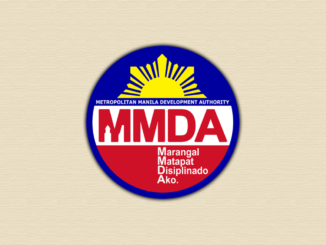
THE United States and five other countries condemned the dangerous actions by China against “lawful” Philippine maritime operations in the West Philippine Sea Monday that left two Philippine Coast Guard (PCG) ships damaged.
Australia, Canada, Japan, Germany and the United Kingdom — through their respective embassies in the Philippines — turned to X, formerly Twitter, to express deep concern over the incident, which took place early dawn of August 19, while Manila contemplated filing a case against China before the United Nations.
The BRP Bagacay and BRP Cape Engaño were damaged in collisions with Chinese vessels that were conducting “unlawful and aggressive maneuvers” near Escoda (Sabina) Shoal, the National Task Force for the West Philippine Sea (NTF-WPS) said in a statement.
IMPACT DAMAGE This handout photo taken and released by the Philippine Coast Guard on Aug. 19, 2024, shows damage to the Coast Guard ship BRP Cape Engano (MRRV-4411) following a collision with a Chinese coast guard vessel near Sabina Shoal.
The two PCG vessels were sailing within the Philippines’ exclusive economic zone and were en route to Patag and Lawak Islands in the WPS, the task force said.
After the incident, US State Department deputy spokesman Vedant Patel said the US reaffirmed that the Mutual Defense Treaty between the two nations extends to armed attacks on Philippine armed forces, public vessels or aircraft — including those of its Coast Guard — anywhere in the South China Sea.
Patel said the “PRC (People’s Republic of China) ships employed reckless maneuvers, deliberately colliding with two Philippine Coast Guard ships, causing structural damage and jeopardizing the safety of the crew onboard.”
“These actions are the latest examples of the PRC using dangerous and escalatory measures to enforce its expansive and unlawful South China Sea maritime claims,” Patel said.
US Ambassador to Manila MaryKay Carlson said the US “stands with the Philippines in condemning the China Coast Guard’s (CCG) dangerous maneuvers near Sabina Shoal that endangered lives and caused damage to two Coast Guard Philippine vessels.”
Australia’s Ambassador Hae Kyong Yu said, “These dangerous actions undermine efforts to de-escalate tensions. We urge restraint and adherence to international law, particularly Unclos (United Nations Convention on the Law of the Sea).
Canadian Ambassador David Hartman said, “These actions are inconsistent with China’s obligations under international law and undermine efforts to de-escalate tensions in the South China Sea.”
Japanese Ambassador Endo Kazuya said that “any harassment and actions which increase tensions or disturb navigational rights are not tolerated.”
German Ambassador Andreas Pfaffernoschke urged “all parties to avoid escalatory actions and to fully respect international law as set out in Unclos and the binding 2016 arbitral award.”
British Ambassador Laure Beaufils said, “The UK calls again for respect of international law, including Unclos, and adherence to the 2016 Arbitral Award, which is legally binding on the parties.”
French Ambassador Marie Fontanel called for the “respect of Unclos and freedom of navigation.”
Endo said he was “seriously concerned over the recent aggressive conduct causing damage to Philippine vessels.” He added, “Japan stands with the Philippines by upholding rules-based order and peaceful settlement of disputes based on international law.”
“We are committed to supporting the rights of our friends, partners, [and] allies under international law,” Carlson wrote on X.
The US called on China to “abide by international law and desist from its dangerous and destabilizing conduct.”
Meanwhile, a spokesman for the National Maritime Council (NMC), Alexander Lopez, said the Chinese actions violated international law, including Unclos and the 1972 Convention on the International Regulations for Preventing Collisions at Sea.
Presidential Assistant on Maritime Concerns Andres Centino, who joined Lopez during the Palace press briefing, confirmed that the case against China could be filed before a UN body, although he did not go into specifics.
In a statement on Monday, Beijing claimed that the PCG vessel collided with the CCG vessel in an “unprofessional and dangerous manner” and warned the Philippines to stop further provocations or else “all the consequences arising from this will be borne by the Philippines.”
But the NMC spokesman expressed Manila’s “serious concern over the deliberate harassment and infringement by China against Philippine sovereignty, sovereign rights and jurisdiction in the West Philippine Sea.”
Lopez said the Department of Foreign Affairs is already working on lodging a diplomatic protest following China’s latest hostile action.
He said that while the Philippines remains steadfast in protecting its sovereign rights over the West Philippine Sea, the country continues to pursue diplomacy in addressing the West Philippine Sea dispute.
No right to intervene
China warned the United States on Tuesday that it has “no right to intervene” in its maritime disputes with the Philippines after the August 19 incident.
China and the Philippines have had repeated confrontations in the waters over the past year, including around a warship grounded in 1999 by Manila on the contested Ayungin (Second Thomas) Shoal, which hosts a garrison.
Asked about Patel’s remarks on Tuesday, his Chinese counterpart Mao Ning defended Beijing’s “legal measures to safeguard its territorial sovereignty and maritime rights and interests.”
“The US is not a party in the South China Sea and has no right to intervene in maritime disputes between China and the Philippines,” Mao told a regular briefing.
“The US should stop provoking confrontation in the South China Sea, not disrupt regional stability and not escalate tensions,” Mao said.
Analysts have said Beijing’s aim is to push eastwards from the Ayungin Shoal towards the neighboring Escoda Shoal in the Spratly Islands, encroaching on Manila’s exclusive economic zone and normalizing Chinese control of the area.
The confrontations have echoes of 2012 when Beijing took control of Scarborough Shoal, another strategic feature in the South China Sea closest to the Philippines.
Despite the recent incidents, a Philippine Navy (PN) official said China’s increasing aggression in the West Philippine Sea is not expected to result in a full-blown conflict.
“First and foremost, all of the actions of the PLA (People’s Liberation Army) Navy, the Chinese Coast Guard and the maritime militia will be below the threshold of conflict; it will not reach the point that they will initiate escalation to the point of conflict,” Philippine Navy spokesman for the WPS Rear Adm. Roy Vincent Trinidad said in a press briefing in Camp Aguinaldo, Quezon City.
“We should focus on the bigger picture of the vast expanse of the South China Sea, a portion of which is the WPS. Again, the presence of the agents of aggression of the Chinese Communist Party is causing all of the dynamics, all of the aggressive maneuvers in the WPS. This may shift from Ayungin Shoal to the eight other features to Bajo de Masinloc (Scarborough Shoal),” Trinidad said.
He said these “dynamics” of the Chinese Communist Party include the Chinese People’s Liberation Army Air Force’s act of dropping flares in the path of a Philippine Air Force plane conducting maritime patrol in the Bajo de Masinloc on August 8.
Despite this, the naval official said the Armed Forces of the Philippines, along with the PCG, and the Bureau of Fisheries and Aquatic Resources, will continue to work in ensuring the integrity of Philippine territory.
“We will not back down from performing our mandate of showing the flag, of resupplying the troops, of rotating the men,” he said.
Trinidad added that Manila’s actions in the WPS will be guided by the rules of engagement and international law.
WITH AFP AND PNA





Be the first to comment